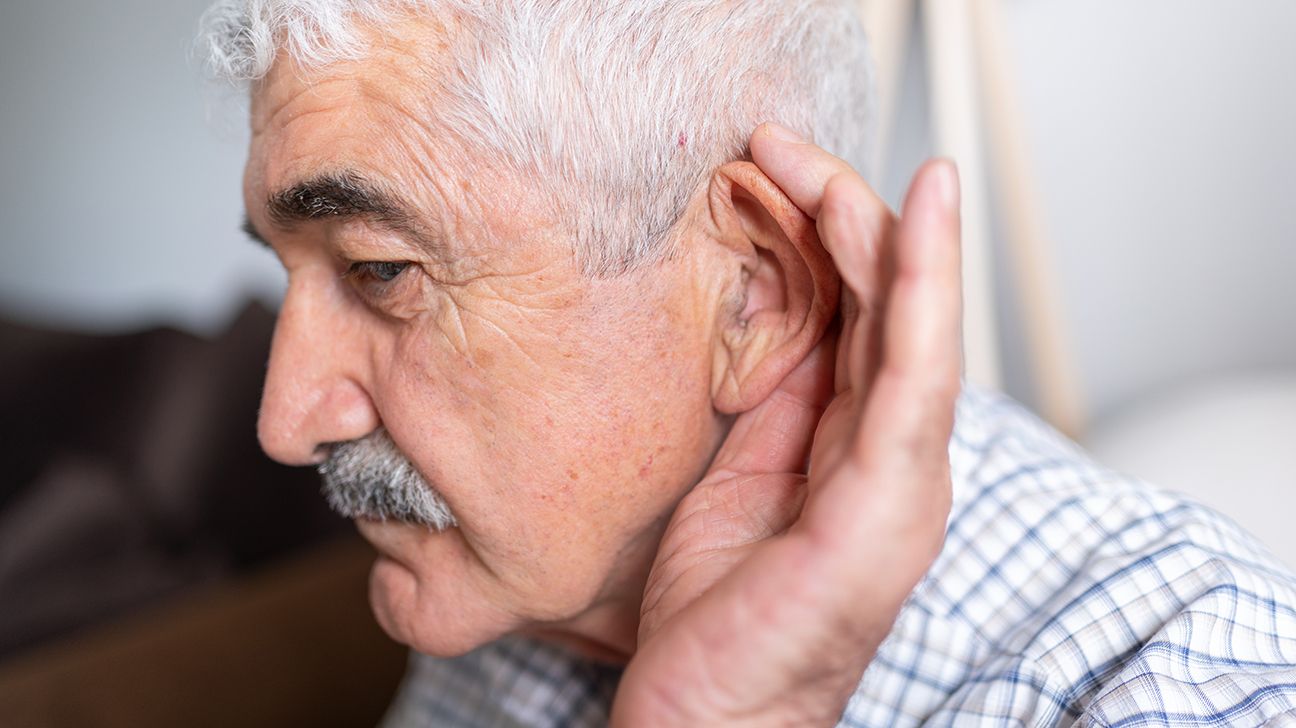Hearing problems were a common side effect reported in studies of Tepezza (teprotumumab-trbw). These include hearing loss, which may lead to deafness.

Tepezza is a prescription medication used to treat thyroid eye disease (TED) in adults. Tepezza — like certain other thyroid medicines — may cause hearing problems, including hearing loss or deafness in some people.
Other hearing problems have also been reported with this drug, such as increased sensitivity to sound. (For instance, your own breathing or talking may sound louder to you than usual.)
In studies, hearing loss with Tepezza was typically mild to moderate and got better after Tepezza treatment ended. But there have been a few
Different kinds of deafness have occurred with Tepezza. These include:
- sensorineural deafness — the inner ear gets damaged and can’t send sound information to the brain
- eustachian tube dysfunction — the eustachian tubes in the ears get blocked which can cause:
- a full feeling in the ear
- decreased hearing capacity
- muffled hearing
- pain
- tinnitus (ringing in the ears)
Hearing loss may cause other symptoms such as:
- the perception that your voice is overly loud or echoing
- a low tolerance to sound
- being unable to hear specific sound frequencies
For more information about other short-term and long-term side effects of this medication, see this Tepezza side effects article.
What you can do
Before prescribing this medication for you, your doctor will evaluate your hearing to make sure the benefits of Tepezza treatment outweigh the risks. They may also check your hearing frequently during your Tepezza treatment and after it ends.
If you notice any changes in your hearing during Tepezza treatment, talk with your doctor immediately. Hearing loss with this drug may become permanent. Your doctor may have you stop Tepezza, but do not stop this treatment without speaking with them first.
If you have questions about your risk of hearing loss with Tepezza, talk with your doctor or pharmacist.
Note: After the Food and Drug Administration (FDA) approves a medication, it tracks doctor and patient reviews of the drug’s side effects. Sharing your experience helps make medication safer for everyone by giving doctors and researchers more information about how the drug works in real life. If you develop a side effect during treatment with Tepezza and want to tell the FDA about it, visit MedWatch or call 800-FDA-1088.
Disclaimer: Healthline has made every effort to make certain that all information is factually correct, comprehensive, and up to date. However, this article should not be used as a substitute for the knowledge and expertise of a licensed healthcare professional. You should always consult your doctor or another healthcare professional before taking any medication. The drug information contained herein is subject to change and is not intended to cover all possible uses, directions, precautions, warnings, drug interactions, allergic reactions, or adverse effects. The absence of warnings or other information for a given drug does not indicate that the drug or drug combination is safe, effective, or appropriate for all patients or all specific uses.




